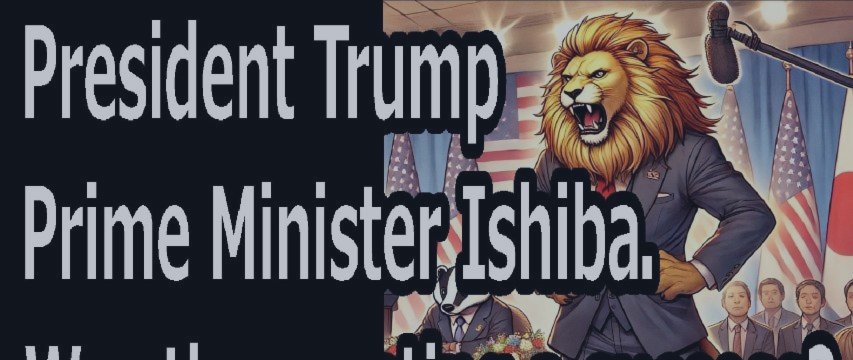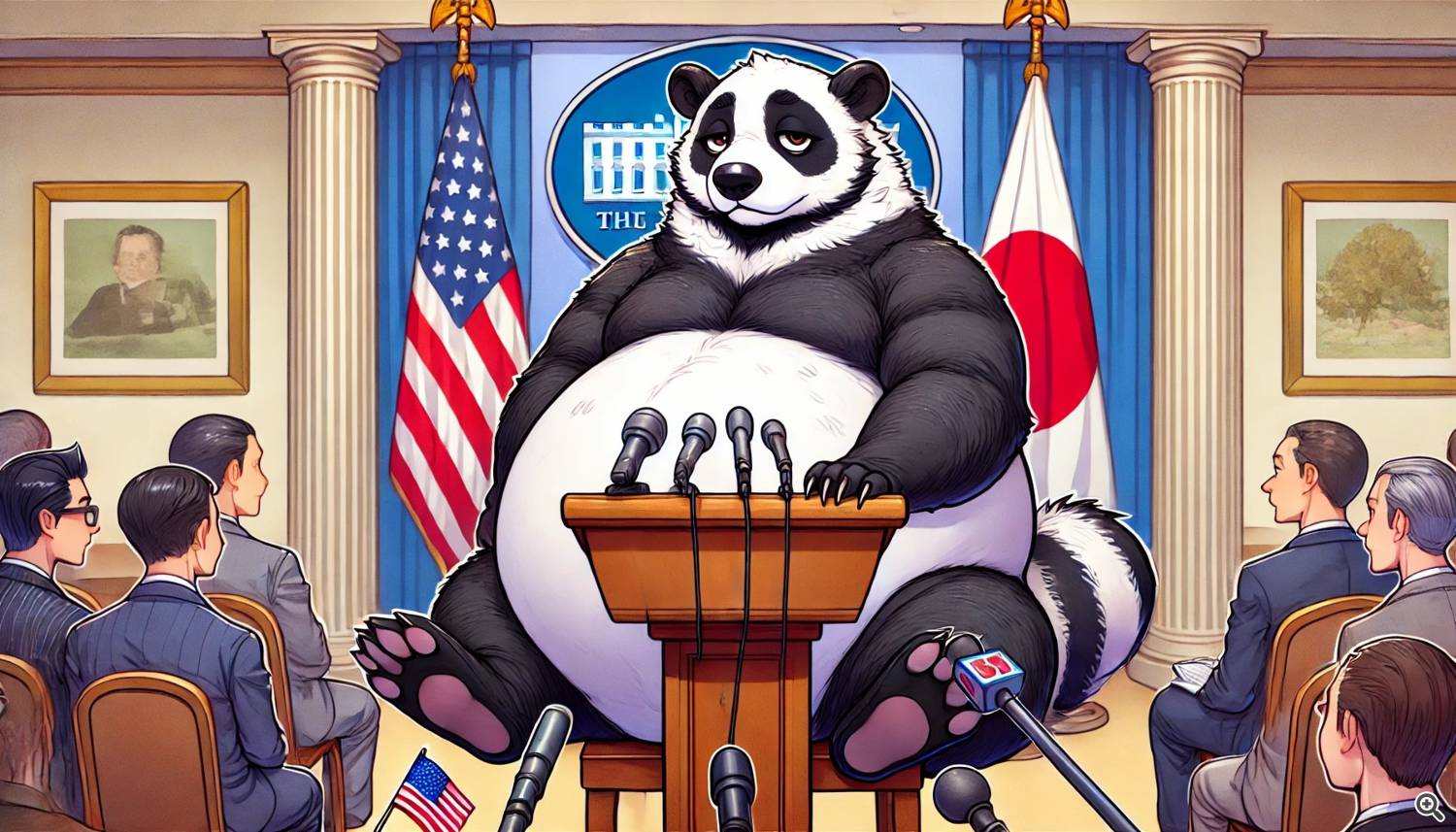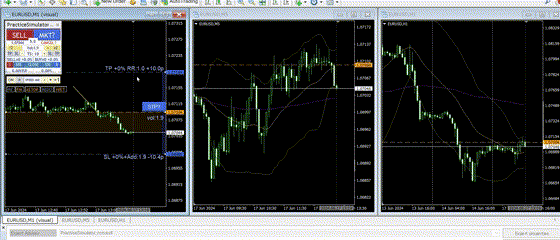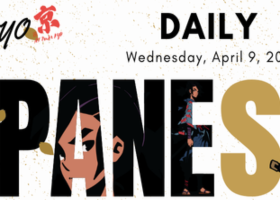
President Trump Abruptly Ends Press Conference! Was There a Problem with Prime Minister Ishiba’s Response?
During the joint press conference between Prime Minister Ishiba and President Trump, an unusual turn of events occurred when Trump abruptly ended the conference over a question about tariffs. As Prime Minister Ishiba avoided giving a concrete answer, Trump smiled and commented, "That is a very good answer," before removing his earpiece and walking out. In Western diplomatic settings, this could be perceived as "rude," and at the very least, it suggests that the meeting was not a great success.
Vague Answers
In Western culture, failing to provide a clear answer to a question is often regarded as "ignorance" or "irresponsibility." While "reading the atmosphere" ("sontaku") is considered a virtue in Japan, Western cultures place less emphasis on such implicit communication and expect explicit opinions. Therefore, Ishiba’s vague response to the question on tariffs might have reinforced Japan’s image of weak negotiation skills.
Recalling Japan’s Wartime Diplomacy
This kind of ambiguous response has had serious consequences in history. Toward the end of World War II, the Japanese government did not clearly respond to the Potsdam Declaration, leading the U.S. to interpret it as a rejection. This misunderstanding ultimately resulted in the tragic atomic bombings. This historical lesson underscores the critical importance of providing clear responses in diplomacy.
Unnecessarily Long-Winded Answers
Ishiba's behavior during the press conference also drew criticism. His posture during the photo session and his unnecessarily lengthy responses raised questions about his leadership qualities on the international stage. In Western press conferences, concise and to-the-point answers are expected, and overly long explanations can be counterproductive.
Japan’s Delayed Response
This summit did not yield any significant achievements for Japan, leaving the impression that Japan had "fallen behind." Thanks to Akie Abe, the groundwork for the meeting had already been laid, yet it was postponed, leading to a major missed opportunity. If the meeting had taken place before January 20, before Trump's inauguration, its lack of substance would not have been as problematic.
Trump is Already Implementing Policies
However, the Trump administration has been swiftly executing major policies, and Japan has clearly fallen behind in this momentum. Particularly, the mention of "reciprocal tariffs" could have a significant impact on Japan’s economy.
Challenges in Japan’s Diplomacy
This meeting highlighted Japan's diplomatic challenges. Moving forward, a more proactive approach and clear messaging will be necessary. In order to protect national interests, strengthen Japan-U.S. relations, and secure Japan's position in the international community, strong leadership is essential.
What demands will be made on Japan?
This Japan-U.S. summit and press conference highlighted several key diplomatic shortcomings:
- President Trump’s abrupt termination of the press conference
- Prime Minister Ishiba’s lack of effective communication
- Japan’s slow response and lack of concrete achievements
- The potential risks of vague responses in diplomacy
Trump’s mention of "reciprocal tariffs" and his plan to announce them soon is a critical issue. However, Japanese media has barely reported on it, downplaying its potential impact.
While Ishiba has been praised in domestic media, this praise seems to stem from the fact that he avoided difficult questions rather than from any successful diplomatic strategy.
Upon returning to Japan, Ishiba downplayed Trump's $1 trillion investment remark, saying, "That’s something for the private sector to handle." He also spoke about inviting Trump to the Osaka Expo, which seemed overly optimistic.
It is questionable whether Prime Minister Ishiba will remain in office until the next election, but it seems unlikely that another meeting will take place.
Recalling Japan’s response near the end of the war, political decisions have, at times, cost lives. This meeting was not just a matter of press conference entertainment; it could serve as a significant trigger for future events.
As a fact, President Trump is rapidly advancing structural reforms. If a major tariff announcement were to be made, it could be attributed to Prime Minister Ishiba's remarks.
Reviewing the footage, at the moment of this statement, Foreign Minister Iwaya, standing right in front of Prime Minister Ishiba, was seen with a broad smile. What could have been amusing in that moment? I do not understand, but perhaps that is just the way things are. This is purely speculation.
If high tariffs were introduced, Japan’s export companies would likely face significant repercussions. Businesses that had benefited from a weak yen could suffer setbacks, potentially leading to a shift toward yen appreciation. As a result, stock prices could decline, economic slowdown could accelerate, and wage increases might become unattainable.
Looking at history, political decisions can have severe consequences. The way Japan handles diplomatic negotiations now may significantly impact the country’s future standing on the global stage.
Try PracticeSimulator for free and redefine your limits. Try it today!
https://www.mql5.com/en/market/product/98348





